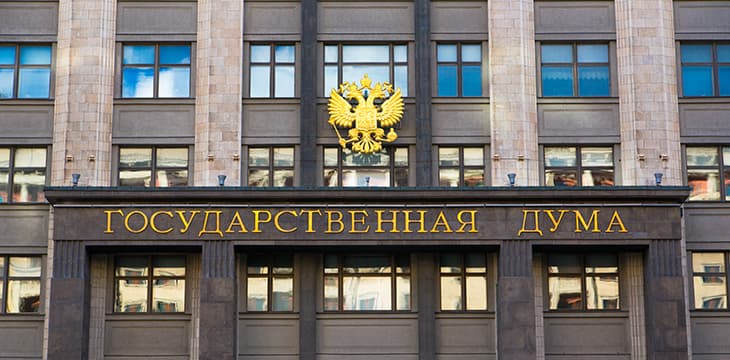|
Getting your Trinity Audio player ready...
|
Lawmakers in the lower house of Russia’s parliament—the State Duma—have approved a draft law that would exempt digital assets issuers and information systems operators involved in their issue from value-added tax (VAT).
The law will also establish tax rates for income earned for the sale of digital assets. Specifically, it stipulates a 13% digital currency income tax rate for Russian digital assets issuers and 15% for foreign issuers. This is a reduction from the 20% standard rate currently imposed across the board.
Reuters reports that the State Duma approved the draft law in the second and third readings. The draft law will still need to be approved by the Upper House and signed by President Vladimir Putin before it can become a law.
The law will benefit several firms which the Central Bank of Russia has licensed as digital asset issuers. These include Atomyze Russia, Lighthouse, Sber, VTB Bank (VTB), and Promsvyazbank (PSB).
Sber, which received its license in March, revealed that its digital currency issuance platform had passed the CBR’s inspection test and is set to proceed with its first digital currency transaction in July.
Russia progressively opening up to digital currency adoption
The draft law is only the latest addition to the raft of regulations Russia is making to give clarity to the digital currency and blockchain industry. The draft law also marks another milestone in Russia’s change of stance on digital assets.
Before Russia began its invasion of Ukraine, the government was highly skeptical of digital assets. The central bank proposed to ban their trading and block reward mining, citing concerns over the country’s financial stability.
However, with the military action came international sanctions targeting isolating Russia’s financial system. The country is now exploring technologies that can ease the effect of sanctions on its financial system, of which a CBDC, blockchain technology, and digital assets are some.
Several bills are making progress in the parliament. One of the bills is to regulate digital assets in the country, while another will regulate block reward mining.
In an amendment to the bill “On mining in the Russian Federation,” the parliament scrapped a tax amnesty proposed for block reward miners in their first year of operation.
Other proposals also iron out other aspects of regulating digital assets. One such proposal is a ban on using digital assets for making payments in the country. It clarifies that only the ruble is legal tender.
Watch the BSV Global Blockchain Convention Dubai 2022 Day 1 here:
https://youtu.be/ggbZ8YedpBE
Watch the BSV Global Blockchain Convention Dubai 2022 Day 2 here:
https://youtu.be/RzJsCRb6zt8
Watch the BSV Global Blockchain Convention Dubai 2022 Day 3 here:
https://youtu.be/RzSCrXf1Ywc

 03-04-2026
03-04-2026 




